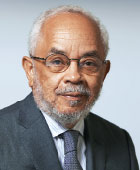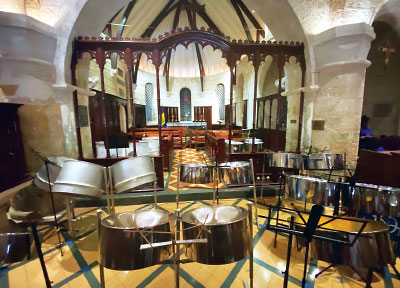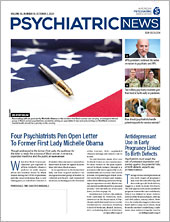Just opposite my childhood home on Barbados, there was a shell of an unfinished wood house. Sometime in the early 1950s, a group of young men moved into the structure and started playing music at all hours of the day on empty, repurposed oil drums. The steel pan had made its appearance in my neighborhood. Trinidadians have always claimed the movement started on their island in the early 1900s. It was said to be connected to the earlier Tamboo-Bamboo musical groups from the era of enslavement. Once oil drums became available on the U.S. military base in Trinidad during World War II, experimentation with steel pans flowered. The modern pan then took root in the rest of the Caribbean, as a symbol of local creativity, and it now enjoys international popularity.
I witnessed its development up close in Barbados. The musicians practiced by purposeful repetition, picking note by note the tunes they wanted to learn. I recall the social stigmatizing that marked the early players. While they bothered no one at all in the community, people saw them as a group of artists who enjoyed being out of work. As the years passed, their outsider status lessened and finally disappeared. Gradually, the steel pan movement invaded the island’s schools and attracted girls and boys, men and women, old and young, and members of all social classes. The pan eventually appeared in every venue where Caribbean groups convened. The photograph on the facing page shows steel pans assembled for a church concert in early 2020.
My recent efforts to understand the pan as a postindependence Caribbean musical instrument have led to some intriguing findings. While it was used earlier to play calypso music and folk songs, artists are now using the pan differently. Earlier this year I attended a classical concert titled “Seasons in Steel.” The program featured Vivaldi, Beethoven, Rossini, and Grieg, highlighting the connection between the steel pan and the composers’ efforts to portray climate in their compositions. The musical results were impressive and illustrated the classical musicians’ exploration of the European musical tradition with this indigenous instrument.
Nevertheless, some Caribbean cultural theorists have been urging the decolonization of Caribbean culture by cleansing local rituals and habits of European influence. In other words, they want the pan to serve as an anti-colonial symbol. However, these militants have met their match in the steel pan. They have not stopped its transformation into a powerful tool of creolization, present in secular and sacred music from Europe, the Caribbean, South America, North America, and Africa. The pan, not under any one group’s control, stimulates freewheeling cultural interactions in social spaces.
Reports from experienced pan musicians suggest that learning to play pan has had a calming and soothing effect on some of their students, especially those who are hyperactive and showing difficulty concentrating. Some students in steel pan programs improve their academic performance and enjoy membership in music groups. Other pan players find the music important in making their environment beneficent, comfortable, homelike, and relaxing. Music makes them feel that they belong in a safe landscape. I enjoyed witnessing use of the pan in the challenge to the European colonizers one evening, then on another night to promote local Caribbean tunes.
The pan seems almost to have a will of its own. It has enabled artists to refashion former geographies of painful colonial dominance into terrains of independence, sovereignty, and promise. It has contributed to the decolonizing of the mental health sphere. I admire its thoughtful and expanded use by musicians who appreciate their professional freedom. Why not use the pan and adapt all kinds of music to it, employing it as a reliquary for rhythms developed at home and abroad? The point is to consolidate one’s self-identity while rejecting subtle enslavement coming from any quarter. The steel pan artist, with his instrument and mallettes in hand, is an important sociopolitical and psychological symbol. I hope the younger players develop a wide vision: One that surpasses the narrow boundaries defined by the tyrannical modern colonizers or the dictatorial descendants of the colonized. ■


